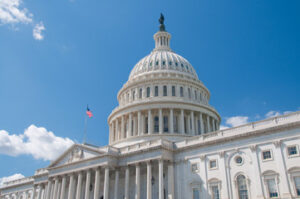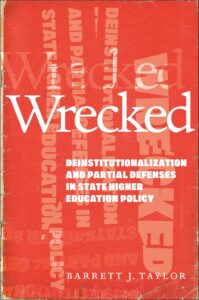Last week, Michael Bernard Donals, President of PROFS, and Jack O’Meara, PROFS’ lobbyist, sent an email to all faculty with an update on the federal and state elections. The text of that message is below:
Hello UW-Madison Faculty Member:
With the election a few days behind us, we wanted to get in touch to summarize what happened and where we see things going in the days and months ahead. We particularly want to make sure you are aware of the results in the state legislative elections.
On Election Night, Wisconsin–long a battleground state–gave former President Donald Trump the electoral college votes he needed to declare victory. Trump won the state by roughly 30,000 votes.
We can expect major changes in higher education policy under President Trump. Here are some articles on that topic:
Democratic U.S. Senator Tammy Baldwin won a close election, defeating her opponent, Eric Hovde, by about 29,000 votes for a third term in the Senate. Our longtime local congressman, Democrat Mark Pocan, was also re-elected. PROFS has strong relationships with Senator Baldwin and Congressman Pocan, dating to their times in the Wisconsin Legislature, and we look forward to working with them and their staffs in 2025.
Because of Democratic losses in other states, control of the U.S. Senate will shift to the Republicans. Control of the U.S. House of Representatives has yet to be determined, as many races, particularly on the West Coast, have not been called. This will be a significant factor in whether President Trump will be able to fully advance his agenda.
The balance of power in the Wisconsin Legislature will be much closer in January following a lawsuit over gerrymandering that resulted in new, more competitive legislative maps. Democrats, however, were not able to take control of the State Assembly, as they had hoped. Given that only half the Senate is up for election every two years, it was not realistic for the Democrats to take back the Senate, but it is noteworthy that the Democrats won all of the most competitive races on the Senate side.
Democrats picked up 10 seats in the State Assembly and four seats in the State Senate. This means there will be 54 Republicans and 45 Democrats in the Assembly, and 18 Republicans and 15 Democrats in the Senate. In the previous legislative session, the balance was 64-35 and 22-11, meaning the Republicans had a supermajority in the Senate and a near-supermajority in the Assembly. Legislators can override vetoes from Democratic Governor Tony Evers with supermajorities.
Some of the notable new faces in the Legislature include Democratic Representative-elect Renuka Mayadev, who will serve in the newly-created district that represents UW-Madison and many areas where UW employees live. Rep.-elect Mayadev currently works at the UW School of Medicine and Public Health. Also of note, Democratic Senator-elect Jamie Wall, a business consultant in Green Bay, was a Rhodes Scholar after receiving his bachelor’s degree from UW-Madison. Senator Kelda Helen Roys (D-Madison), a strong advocate for the faculty and UW-Madison, was also re-elected.
Legislators are beginning to elect their leadership. Senator Mary Felzkowski (R-Tomahawk) was elected by her caucus to serve as Senate President. Senator Felzkowski is a long-time member of the Joint Finance Committee. Senate Majority Leader Devin LeMahieu (R-Oostburg) will continue to serve as leader. More leadership votes will take place next week, and committee memberships will be announced in the coming weeks.
The 2025-27 state budget, including funding for UW-Madison and the Universities of Wisconsin, will be at the top of the agenda for the new Legislature when they take office in January. Following the recommendation of UW System President Jay Rothman, the UW Board of Regents has requested $855 million in new funding for the universities.
Last week, the Legislative Council Study Committee on the Future of the UW System endorsed the idea of a separate board and separate funding for UW-Madison, along with bonding authority for the university, plus other suggestions. PROFS will monitor developments and advocate for the best possible result for UW-Madison and its faculty.
As always, let us know if you have concerns, suggestions, or questions.
Sincerely,
Michael Bernard-Donals, English & Jewish Studies
PROFS President
Jack O’Meara
PROFS Lobbyist
